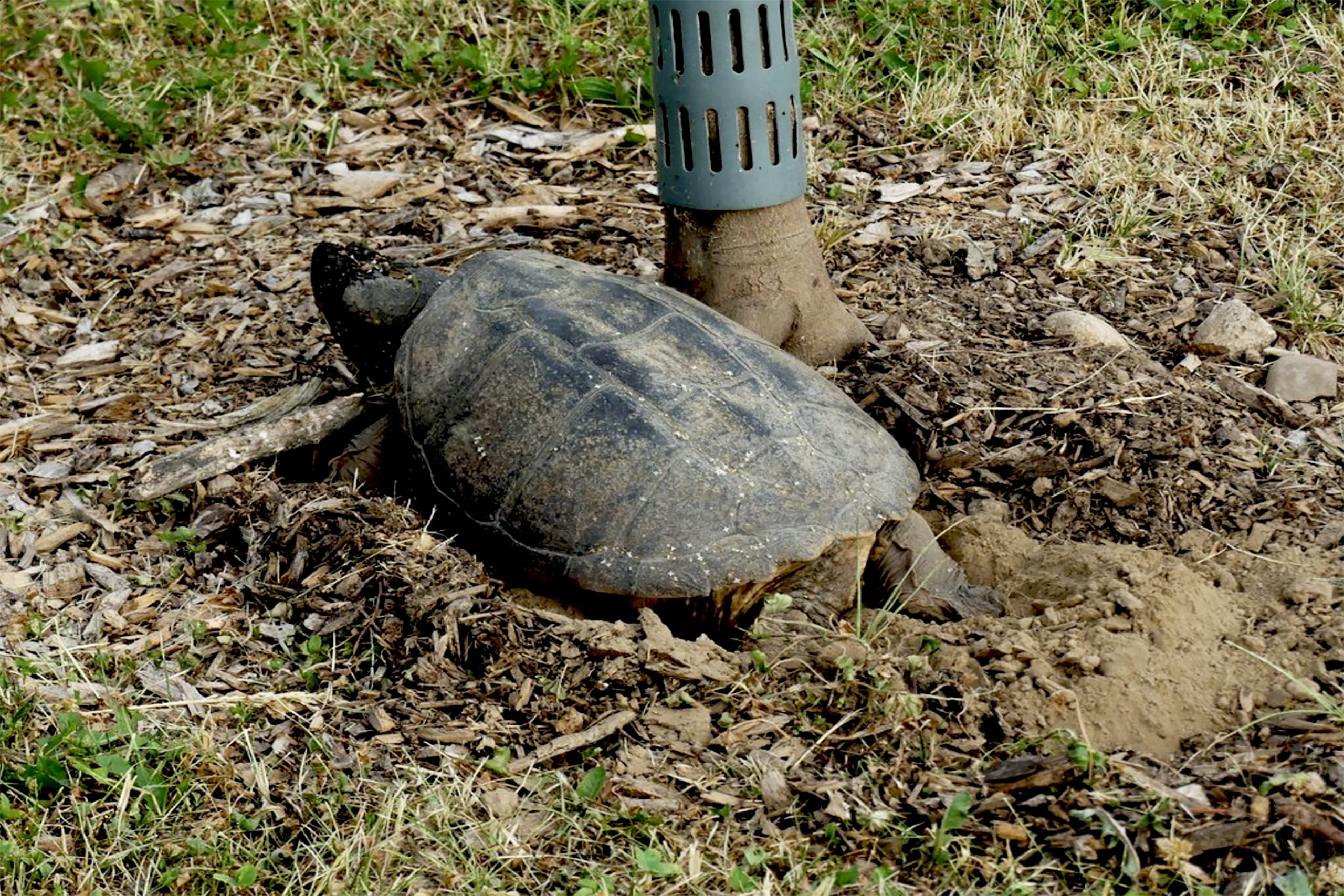WELLINGTON COUNTY – Volunteers at rare Charitable Research Reserve and other organizations are busy protecting turtle nesting sites and incubating eggs.
Drivers and walkers are asked to keep an eye out for turtles crossing roads or turtle nests near public trails, state rare representatives.
“We’ve launched the Turtle Hotline for people to report vulnerable nests at 226-962-6885,” says James Bow, rare communications officer.
“Already, our staff and volunteers are busy heading out to nesting sites, putting up protectors where possible, and relocating eggs if necessary.
“We’ve collected close to 1,800 eggs so far. If you leave a message on the hotline and don’t hear back, please understand that we’re already out in the field, working to protect many other nest sites.”
For many nests, volunteers place a wood and wire box that shields from predators. It’s important that people leave the boxes alone.
Where nests are deemed too vulnerable to protect, rare staff will collect the eggs and take them back to rare to be recorded and incubated.
The eggs that hatch are then returned to within 100 metres of the original nesting site, where possible.
Since the rare Turtle Project was launched in 2017, over 7,000 turtle hatchlings were incubated and released.
“Southwestern Ontario has the largest diversity and highest concentrations of reptiles in all of Canada, but it also contains the highest concentration of people, the largest networks of roads, and the most development,” said are conservation technician Alissa Fraser.
“Habitats are fragmented, and cars and trucks take a huge toll on adult turtles.”
Other conservation agencies are also busy protecting turtles at this time.
Distress hotline
The Ontario Turtle Conservation Centre has its own turtle distress hotline at 705-741-5000.
Further information can be found at ontarioturtle.ca
“It’s going to take all of us to help the turtles,” says Stephanie Sobek-Swant, rare executive director.
“We need to keep our eyes open for turtles crossing the road, or nest sites laid near busy public areas.
“Most of all, we need to give these turtles their space. The more lands that we can protect, the healthier these species are going to be.”
The rare Charitable Research Reserve is a charitable urban land-trust stewarding over 1,200 acres of environmentally sensitive lands.




